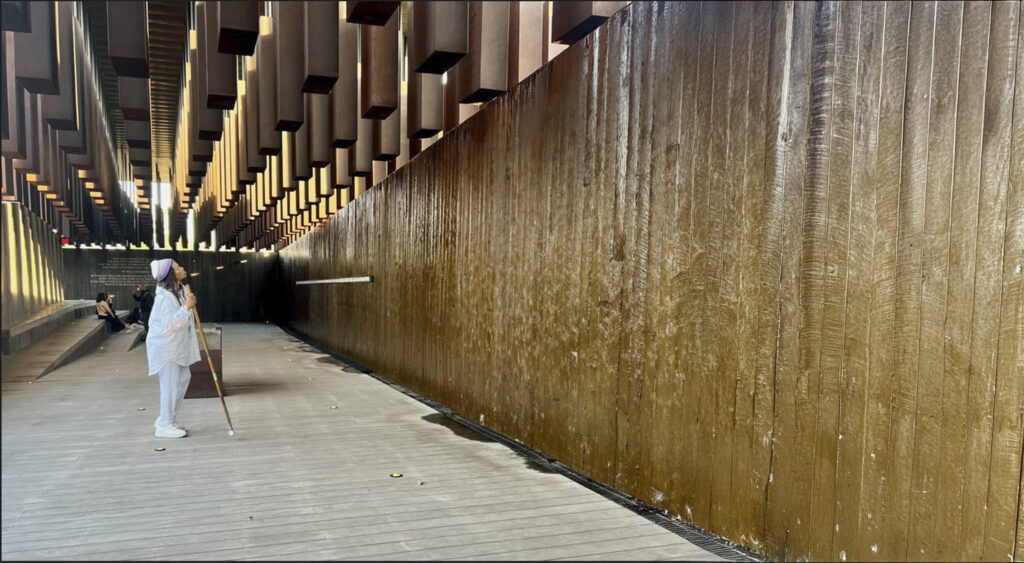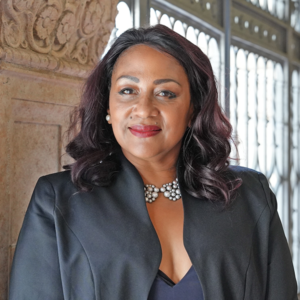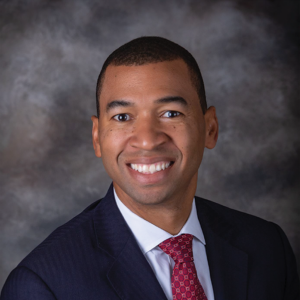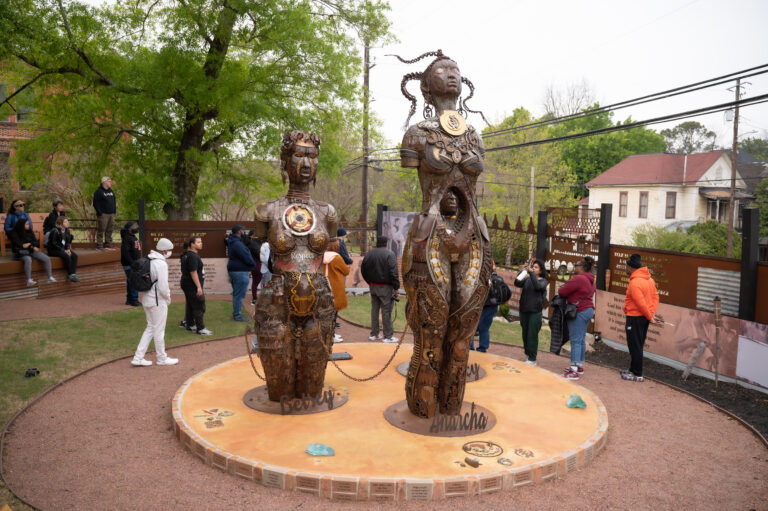Contact GLIDE
The Alabama Justice Pilgrimage is an immersive, experiential learning program of GLIDE’s Center for Social Justice (CSJ) that seeks to tell the truth about American history, highlight inequities in health, economic, and criminal justice outcomes, articulate connections between slavery and mass incarceration, and interrupt current, incomplete narratives about oppression, crime, and punishment. This multi-day transformational journey is central to GLIDE’s work to heal the wounds of enduring racism and economic inequality in San Francisco, the Bay Area, and beyond.
Where You’ll Go and Why
Together, we will visit pivotal sites from the Civil Rights movement and meet up with modern-day prophets, activists, artists and educators who are courageously turning dials on justice in Alabama today. With a segregationist movement surging in our country, it’s more important than ever for leaders to ground their actions in civil rights history.
A Heart-Centered Journey
At GLIDE, we define a pilgrimage as, “a journey of personal spiritual discovery that forever changes you.” What sets GLIDE’s journey apart is that we spend ample time in our preparatory meetings and on the ground, mentally and spiritually processing the heaviness of the journey and the wisdom received from our teachers.

Regina Wells, also known as Rashida Oji, GLIDE’s Senior Manager of Transformative Learning, reflecting at the National Memorial for Peace and Justice on the brutal history of racial terrorism and lynchings and their continued impact on America.
This in-depth tour of civil rights history and present-day struggle will fill you with intense emotions every day and transform your perspective forever. We will literally retrace the steps of history, examine historical monuments, and visit museums that connect past with present. We will meet with purveyors of Black Medicine, mighty educators and activists and artists who pulse with a sense of righteousness, creativity, wonder, wisdom, and humor. These people will help anchor our journey and leave deep imprints on your soul.
Pre-Learning Sessions: A series of meetings to prepare for the trip and get to know your fellow pilgrims.
Contact alabamapilgrimage@glide.org with questions and get information.

“This trip is important because of truth-telling. We’ve got to tell the truth about what happened. Black history is American history and should be told every day.”
Dr. Gina Fromer
GLIDE President & CEO

“What you are seeing here in Montgomery and in Alabama is a journey from pain to progress. For those of us who go back generations here in Alabama, we’ll never say “we can’t.” We’ll always figure out how to make it better going forward. And our work is not done!”
Mayor Steven L Reed, City of Montgomery, AL
Elected as the first Black Mayor of Montgomery in 2019

The Mothers of Gynecology Monument – Anarcha, Lucy, and Betsey. They were enslaved women that were experimented upon without their consent. Their horror is the basis of gynecology as we know it today.
Pursuing Progress
This short documentary film about the Alabama Justice Pilgrimage will show you how it transformed the lives of GLIDE clients. Whether you’re understanding the evil committed by your ancestors or your ancestor’s heroic resistance to unimaginable cruelty, the truth still has the power to liberate you! This film has a special spotlight on Jamien (JJ) Johnson and DeShawn Brown, two participants from GLIDE’s Men in Progress Program. Connecting with the strength and resilience of their Black ancestors gave them hope and inspiration for their present-day lives.